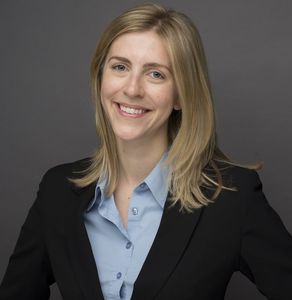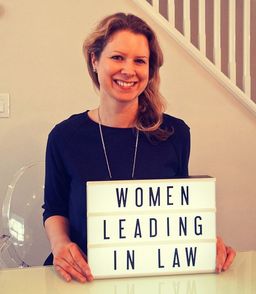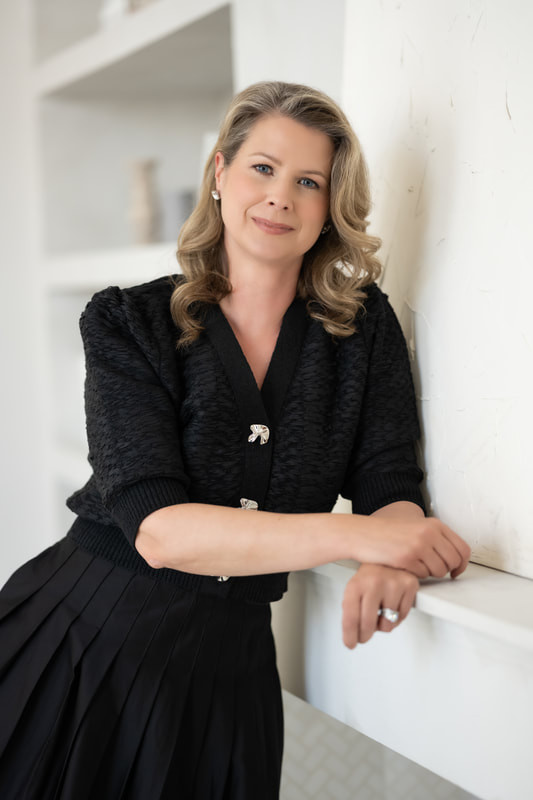 I'm mixing things up a bit for this Women Leading in Law post: I am happy to profile Jessica Prince, a lawyer who is using her legal skills to succeed in leadership in the political arena. Jessica previously held the position of Senior Policy Advisor to the Minister of Justice and Attorney General of Canada, Jody Wilson-Raybould, and I am super excited to announce that Jessica has just started her new role as Chief of Staff to Minister Wilson-Raybould. My husband introduced me to Jessica at a lawyer event several years ago and we've run into each other at various events since. While I already had her on my "wish list", several other people suggested that I profile Jessica in this series. It was a no-brainer. Read on to learn more about Jessica's transition from law to law & politics and her insights on the importance of mentoring and networking in a legal career: 1. Tell me a little about your practice or business: I spent five years as a litigator in private practice on Bay Street. I was lucky to land articles at the Toronto office of Lerners LLP, where I was exposed to a wide variety of litigation work and had a fantastic mentor in Gillian Hnatiw. After my call to the bar in 2011, I joined the litigation team at Thornton Grout Finnigan LLP, a dynamic boutique that specializes in commercial litigation and bankruptcy work. My clients were mainly corporations, banks, and wealthy individuals. I had the good fortune to appear as counsel before the Federal Court and Federal Court of Appeal, and to act in a dispute against the Province of Ontario over the cancellation of the Oakville power plant. I worked closely with Michael Barrack, who is an exceptional litigator and was a great mentor as well. After a couple of years, I was itching for a litigation practice beyond just commercial work and was keen for more opportunities on my feet. That lead me to Polley Faith LLP, a new boutique firm of - at the time - eight lawyers doing a really exciting array of litigation work. I got the more varied practice that I was Iooking for and more of my own advocacy opportunities. My files encompassed some commercial litigation, but also general civil work, professional regulatory work, and some criminal defence. Appearing as counsel before the Supreme Court of Canada in Carter, the landmark medical assistance in dying case, was a career highlight for me. After the federal election in late 2015, I was offered the opportunity to join the office of the newly-appointed federal Minister of Justice and Attorney General of Canada, the Honourable Jody Wilson-Raybould. I was to be a Senior Policy Advisor to the Minister. It was impossible for me to say no. By January 2016, I was in Ottawa, working on the new medical assistance in dying legislation that was a response to the Supreme Court’s unanimous decision in Carter. I was also the point person in our office on the legalization of cannabis file, and assisted the Minister with sexual assault law reform. As a law student intern in our office said to me, the job was like “Disneyland for lawyers.” The work was incredibly interesting, socially meaningful, and had an enormous impact. I loved it. As 2017 drew to a close, I left my role in the Minister’s Office - with a heavy heart - so that I could spend more time with my Toronto-based partner. We travelled the world for 3 months (which I highly recommend to everyone!) and are now back in Toronto, where I am currently exploring options for my next professional opportunity. [Editor's Note: Jessica provided me with these answers several weeks ago. As noted above, they have moved back to Ottawa where Jessica has taken the role of Chief of Staff to Minister Wilson-Raybould] 2. Why did you go to law school? I studied Canadian political science as an undergraduate at McGill. As my degree was wrapping up, I remember thinking, “I have a BA in poli sci, so what now?”. In my final year, I debated between pursuing a Masters degree in political science and going straight to law school. I was lucky enough to be offered a scholarship to pursue a joint Masters degree at McGill and Sciences-Po in Paris. However, my dad - who is a professor himself - convinced me that, unless I planned to get a PhD and become a professor, there was not much sense in getting a standalone Masters. I had already written the LSAT and had expressed an interest in law, so why not just go to law school straight away? So, that’s what I did. I had applied to law schools across Canada and a few in the US, but ultimately ended up accepting at the University of Oxford. Law is an undergraduate degree in the UK, but as someone who already had a university degree, I was able to pursue the three year degree program in two years. As such, I completed my BA in what Oxford calls “jurisprudence.” In 2009, after completing the Bar Vocational Course, I was called to the Bar of England & Wales. For a variety of reasons, I decided that a legal career in England was not for me and that I wanted to return home to Canada. After completing my bar course in London, I decided that I would apply to have my law degree recognized back home in Canada, apply to article at a law firm in Toronto, and prepare to write the Ontario bar exams. 3. How did you get to where you are today? Design? Chance? Both? I would say both design and chance were at play. I have never been a “five or 10 year plan” kind of person, but I always knew that I wanted to litigate. I had done a bunch of debating in high school and in university, which I absolutely loved, so when I was studying law and deciding where to apply for articles, I knew that I wanted advocacy to be a big part of my practice. While I did not know exactly what area of law I would focus on and was pretty open to opportunities as they presented themselves, the fact that I knew that I wanted to be a litigator helped guide my decision-making early on. Making the transition to politics was a bit serendipitous. Granted, I had always been interested in Canadian politics and I had been involved with the Liberal Party of Canada in a volunteer capacity since high school. However, I did not necessarily see myself taking paid employment in a political role. I always thought politics would be a fun extra-curricular activity on top of my paid gig as a lawyer. That changed after the federal election of 2015. A mentor connected me to someone in Jody Wilson-Raybould’s office and told me to send in my CV. On a whim, I did and, to my surprise, I was quickly interviewed and hired. I would say that move involved a bit of luck, but I also had the right experience and the right political credentials for the job. Deciding to leave the more traditional and well-worn track of private practice also took a bit of daring on my part. In my career so far, I have been very lucky. However, I will also acknowledge that I actively maintain my network and that network has always helped me. Apart from my articling position, I have never gotten a job via a recruiter or a posting in the ORs. All of my professional moves have been the product of my network; being connected to the right people, making it known what I am looking for, and being willing to take those leaps. No matter where you are in your career or how happy you may be in your current gig, keep that network alive. It can only ever help you. 4. What is your most significant achievement? What are you proud of? My most significant professional achievement revolves around the Carter case and subsequent government legislation. When I was still in private practice, Harry Underwood (who is an incredible lawyer and wonderful person) and I were retained by the Canadian Medical Association to intervene on their behalf at the Supreme Court of Canada in the Carter matter. The case involved two women who were seeking the assistance of a doctor to end their lives. By the time the case made its way up to the Supreme Court, no physician organization had been heard from, despite the fact that what was being discussed necessarily involved the assistance of physicians. The CMA was unique as an intervenor, as they were the only one not to take a position on the ultimate issue (i.e. whether or not the absolute prohibition on physician assisted dying was constitutional). Rather, the CMA was of the view that the perspective and concerns of physicians, who as a profession were split on the question itself, should be considered by the Court. Appearing before the Supreme Court of Canada as counsel in that case is an experience that I will never forget. Little did I know that, shortly after having worked on the case, I would be hired as an advisor in the office of a Minister charged with drafting the legislative response to the decision. Given the Court-imposed timeline, there was an urgency to the Government’s actions. After an extensive consultation process with stakeholders, Bill C-14 was introduced in the spring of 2016 and was passed by the time Parliament rose for the summer. As a lawyer, it was incredible to see how Ministers make decisions, legislation is drafted, how it works its way through the House and the Senate, and is amended by Committees along the way. I gained a whole new appreciation for the work of counsel - in this case, policy counsel and legislative drafters who work in the federal government - for the extensive and important work that they had to do under enormous time pressure and intense public scrutiny. The political science nerd in me couldn’t believe that I got to have a front row seat to such an important piece of Canadian political history! 5. What are some key challenges, and more importantly, opportunities for women in law? When I was in private practice, I was on Bay Street. Unfortunately, that slice of the profession is still disproportionately male, especially in areas like commercial litigation. While I got incredible experience and learned from some fantastic mentors early in my career, it was not unusual for me to be the only woman in the room. I remember one occasion in my first couple years of practice, attending at the Commercial List as counsel, looking around the courtroom, and realizing that all of the other lawyers (nearly 15 of them) and the judge were all men. While it was not an every-day occurrence, I experienced condescension and rudeness from senior male counsel on several occasions. This came in the form of nasty voicemail messages, snide remarks at discovery, or whispered barbs in the courtroom out of earshot of the judge. It was hard for me to pinpoint whether this was happening because I was female, because I was younger, or both. Regardless, the experience was disheartening. More than anything, having senior female mentors in the profession who I could turn to for advice helped me. Here is an important opportunity though: some clients actually care about diversity. I saw this with some of my corporate clients. Some had female in-house counsel who made it known that they wanted to see women on their external legal teams. Other clients had explicit policies requiring gender diversity on their legal teams. This is clearly the direction that society is moving in and - while law is usually behind the ball on these issues - our profession should catch up. Another opportunity: I have an incredible network of women lawyers across the profession. When I was still in practice, we would refer work to each other, and if we had a file in an area that none of us could cover, for example a real estate matter, we would fish around for names of female real estate lawyers and make sure that the work went to a woman. Show your sisters some love and send them your conflict work. Politics is a male-dominated world too, but it is changing. In 2015, Prime Minister Trudeau showed real leadership on this issue by appointing a gender equal Cabinet. This was historic. At the time, some media commentators suggested that this would somehow dilute the quality of the Cabinet; if anything, time has shown that some of the Cabinet’s strongest performers are female. My former boss, Minister Wilson-Raybould, is an excellent example of this. Politics also taught me the importance of role modelling. This is an opportunity for women as well. Minister Wilson-Raybould is the third woman to be Canada’s Minister of Justice and Attorney General, and the first Indigenous person. Countless times, I saw young women and Indigenous people approach her, and tell her how important it was to them that she was in this role. I cannot understate how powerful that was to witness. Role modelling and mentoring matter. If you are a woman in a position to inspire and advise others, do it. 6. What advice would you give a woman starting her legal career? Remember your values and what matters to you. You can’t plan your whole career out. There will be unanticipated challenges and opportunities. People will disappoint you and others will surprise you. You won’t always have the answers or know what path to take. Remembering what matters to you and what you value can guide your decision-making. Keeping these considerations top of mind will help you decide what jobs you take, the sort of work that you do in those roles, what you spend your non-work time doing, who you choose as your mentors, and who you ultimately end up mentoring. The other piece of advice, which I have always taken to heart, is to maintain a sense of justice and a sense of humour. I try to live by that every day. --------------------------------------------------------------- Thank you Jessica for participating in the Women Leading in Law series and best of luck with this new and exciting chapter in your legal career! ICYMI: Previous posts profiled Anu K. Sandhu, Claire Hatcher, Esi Codjoe, Kate Dewhirst, Jennifer Taylor, Rebecca Durcan, Atrisha Lewis, Vandana Sood, Kathryn Manning, Kim Hawkins, Kyla Lee, and Eva Chan. Sign up to have these profiles sent directly to your email address and stay tuned for the next post soon! The "Women Leading in Law" series focuses on good news stories and highlights amazing women succeeding in the legal profession. Each post includes the profiled lawyer's answers to six questions. Prepare to be inspired!
0 Comments
Your comment will be posted after it is approved.
Leave a Reply. |
Erin C. Cowling is a former freelance lawyer, entrepreneur, business and career consultant, speaker, writer and CEO and Founder of Flex Legal Network Inc., a network of freelance lawyers.
Categories
All
Archives
December 2022
|
|
(C) 2014-2024 Cowling Legal. All rights reserved.
|
Please note I am not currently practicing law.
Information on this website does not constitute legal advice and is for informational purposes only. Accessing or using this website does not create a solicitor-client relationship. See website Terms of Use/Privacy Policy. info@cowlinglegal.com
3080 Yonge Street, Suite 6060 Toronto,ON M4N 3N1 (appointment only) |







 RSS Feed
RSS Feed
